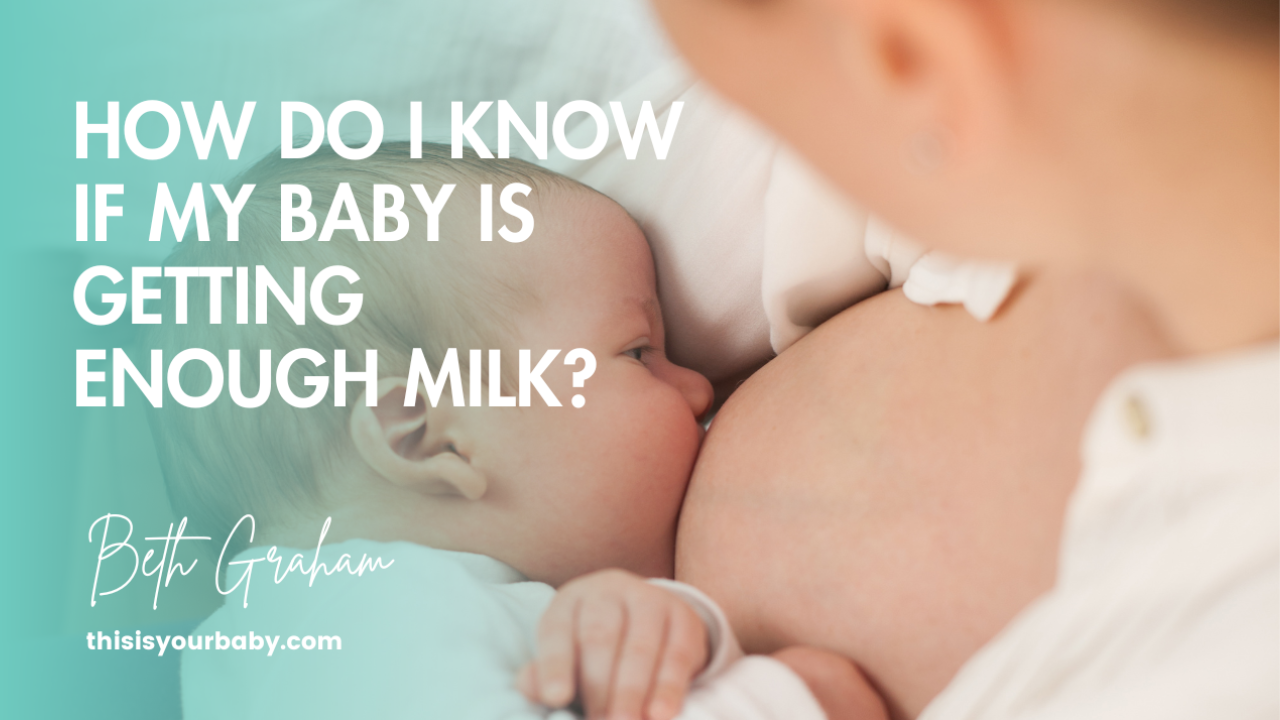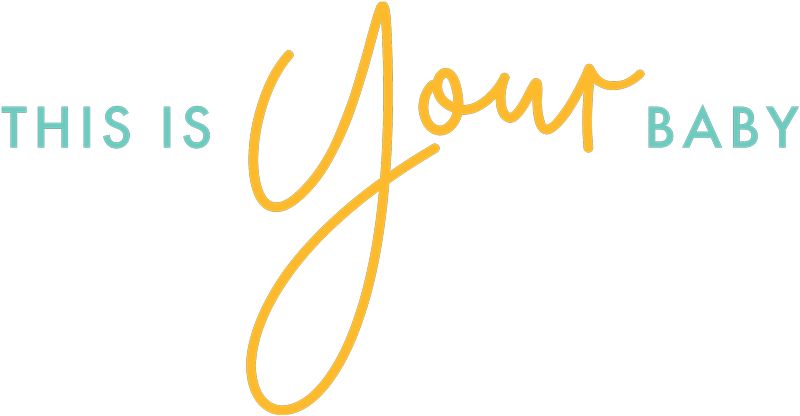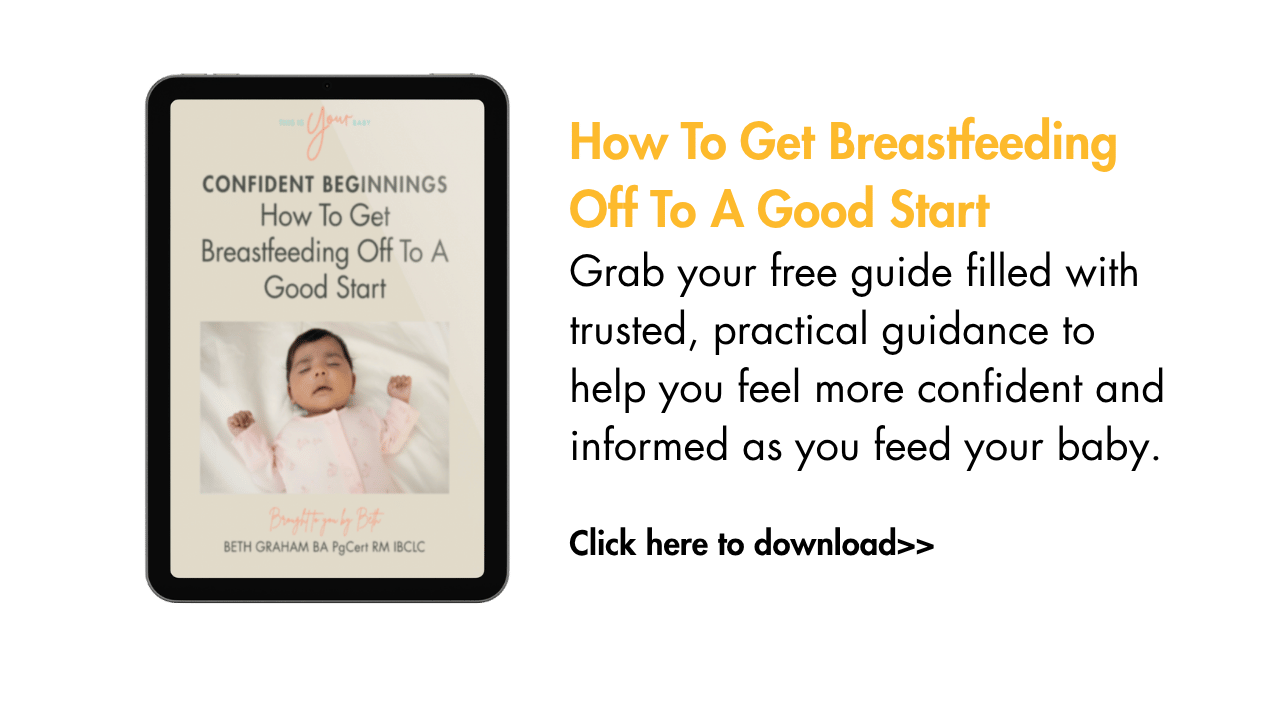How Do I Know If My Baby Is Getting Enough Milk?
Sep 30, 2025
One of the biggest worries for breastfeeding parents is this: “How do I know if my baby is getting enough milk?”
You can’t measure it like you would with a bottle and, in those early weeks, your baby’s survival feels entirely in your hands. That’s a big weight to carry.
Let’s break it down so you can feel more confident, less anxious, and more connected to what your baby really needs.
But My Family Says They’re Still Hungry…
Well-meaning family members will often suggest that a crying baby must be hungry. So you feed them again. But what if they weren’t hungry? What if they were just overtired, overstimulated, had wind, or wanted a cuddle?
Overfeeding can sometimes make things worse, especially if your baby was already full. Instead of a settled baby, you may end up with one who is uncomfortable and more unsettled.
You’ll become your baby’s expert. Over time, you’ll start to recognise when they truly need more milk and when they’re looking for comfort, connection, or sleep.
Weight Gain is Good — But It’s Not the Only Indicator
Weight gain is definitely something to monitor, and healthcare professionals often use it to gauge how feeding is going. But it’s not the only measure of success.
In the first few months, you’ll hear “well done, they’re gaining weight beautifully” - and then, when we are adults, we spend the rest of our lives trying not to gain weight. That’s a confusing message.
Yes, babies need to grow. But it’s not about fattening them up quickly. It’s about feeding responsively, learning their cues, and trusting that sometimes sleep and soothing are what they really need.
Don’t Let Overtiredness Disguise Itself as Hunger
Here’s something a lot of people don’t realise: the signs of being overtired can look just like hunger cues. Babies put their hands in their mouths, squirm, cry, and seem unsettled. It’s easy to assume they need more milk.
However, if they have been awake too long, they might just need sleep.
Newborns usually only stay awake for around an hour at a time, including feeding. By three months, that stretches to 1.5 to 2 hours. If they’re awake for too long, they get overtired - and that makes it harder to settle for sleep.
Being aware of these ‘wake windows’ can help you meet their needs without defaulting to more milk every time.
So How Do You Know They’re Getting Enough?
Here are the key signs to look for:
Wet and Dirty Nappies
(Think of a day as 24 hours)
- Day 1: 1 wet nappy
- Day 2: 2 wet nappies
- By Day 5: at least 5 wet nappies
Poo patterns
- In the first 48 hours: black sticky meconium
- Then changing colour through: green, brown, and finally yellow poo
- From then on: mustardy yellow, runny poo, with small lumps the size of wholegrain mustard that are squishy like cottage cheese
These are all signs that baby is getting what they need from your milk.
Feeding Patterns
- Rhythmic sucking with audible swallows
- Settling to sleep between feeds
- Waking regularly for feeds
- Once back to birth weight, feeding around 6 to 8 times in 24 hours
Both sleepy and unsettled babies can be a concern. If something doesn’t feel right, seek support.
Weight Gain
- Babies lose weight initially. Losing up to 10% of their birth weight in the first five days is OK
- By 3 weeks, most are back at their birth weight
- After that, a gain of 15 to 60 grams per day (the average being 30 grams per day) is typical until around 5 months, when babies often double their birth weight
Find Your People
You don’t have to do this alone. Parenting is not a solo act. Find your village — whether that’s local friends, online support, baby groups, or other parents who share your approach. Being around others who ‘get it’ can make a huge difference.
And Most Importantly… Trust Yourself
You are the expert on your baby.
If something feels off, ask for help. If you’re worried about how much milk your baby is getting, speak to your health visitor, lactation consultant, or GP.
Start with a weight check, share your concerns, and go from there.
No one else has your baby. This is your baby and your journey. And you’re doing brilliantly.




